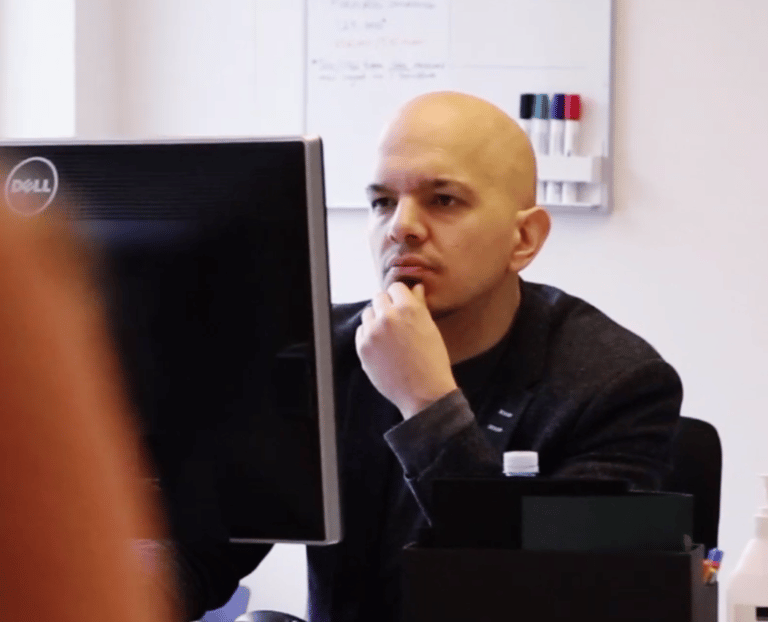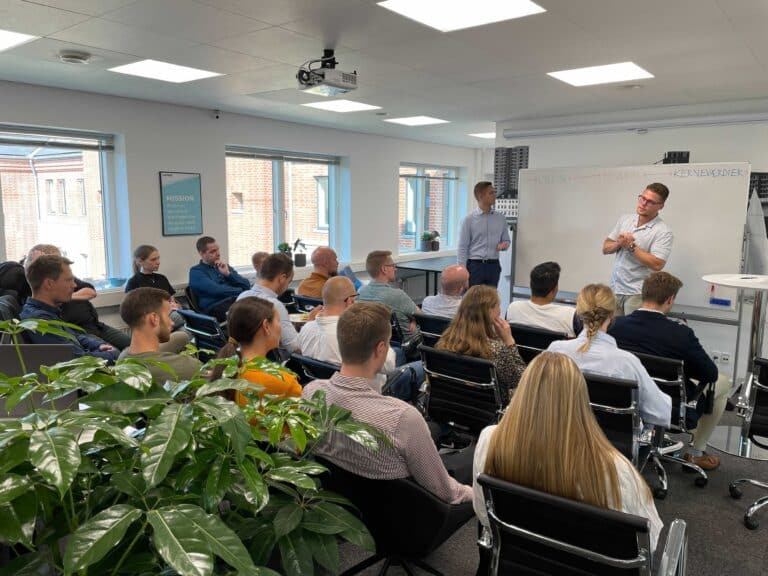CASE
GAIS has become a cultural cornerstone in Eupry’s growth
Startup company Eupry measures job satisfaction every quarter. The insights gained are discussed at Friday meetings and become team initiatives. Job satisfaction has become a cornerstone of Eupry’s culture during its growth.
Job satisfaction survey at Eupry
Leadership
AS best result
A common job satisfaction language
Eupry expanded rapidly from its five founders, employing a large number of new employees. Growth created the need to be able to track job satisfaction and create a culture and language to support job satisfaction.
They began to use GAIS to create a permanent structure around measuring, understanding and tracking trends in job satisfaction.
“GAIS helps us to maintain focus despite all the change going on when we grow so fast. And it’s given us a bigger vocabulary to talk about job satisfaction. Thanks to the seven factors for job satisfaction, the whole thing becomes more manageable. It’s really simple, and it just gets easier for us to make it a permanent part of our working routines. Especially because we are a startup, it gives us a parameter within job satisfaction to work with,” says Adam Hartmann-Kruchow, co-founder and CMO at Eupry.
The main points derived from surveys are discussed at their Friday catch-up meetings, while other times it might be a workshop looking at certain focus areas, depending on what the surveys reveal.
“It’s important to us that our employees can see that we’re using the GAIS surveys and that we learn from the results. We want them to feel that their opinions are heard when they’re invested time in responding to something.” says Christian Jacobsen, CEO and co-founder.
The effect of initiatives is seen over time
Given that Eupry surveys job satisfaction quarterly, the effect of initiatives launched in response to survey results can be clearly seen. The management group have realised that when they wanted to address several factors concerning job satisfaction at a strategy seminar for all the personnel.
“We could see that a strategy seminar was needed for our personnel, at which the management could explain its thinking behind the business and where we were going with it. Subsequently, we could see that those factors grew in importance in line with management. So by incorporating management and opinions in the seminar, everyone gained a better understanding of Eupry,” explains Hartmann-Kruchow.
Everyone has to be involved
Being good at your job was a particular focus of Eupry’s management group, as the first surveys showed that skills could be improved.
“We want our employees to gain more self-confidence in their work, and to be able to see ability as a learning process. Having the ability to do a job is not a perfect process, but a feeling of being confident with the tasks set,” says Hartmann-Kruchow.
The employees are therefore encouraged to attend new courses that interest them, and they’ve discussed what ability means within the company.
“For job satisfaction to become a culture, involving the employees is essential. That’s also why we try to delegate some of the responsibility, for example by encouraging the employees to go on the courses they find interesting, or being responsible for planning the next event in the department,” adds Hartmann-Kruch.

Adam-Hartmann-Kruchow
Co-founder & CMO at Eupry


